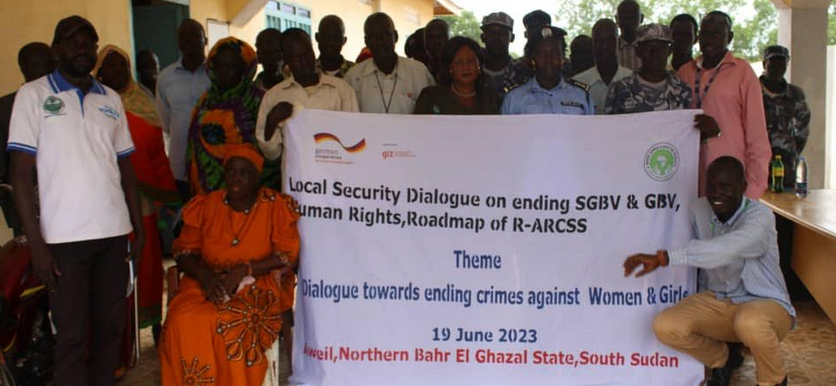Women leaders from church-based groups, the police, civil society organizations, and the community have demanded the elimination of crimes such as gender-based violence and sexual and gender-based against women, girls, and children in Northern Bahr el Ghazal State.
The call was made on Tuesday at the close of a two-day training workshop conducted by the Hope Africa South Sudan (HASS) in Aweil town in collaboration with the state ministry of gender, child, and social welfare to increase efforts in eliminating all crimes and harmful practices against women.
Some of the 70 participants who attended the workshop said they were empowered to support issues concerning women and girls and to improve their participation in decision-making.
A policewoman identified as Ayak Dimo Lual said the training was good because they discussed all the issues that hamper the growth of women, girls, and small children.
“We have attended the very nice workshop and we wish every woman, girl, and small child relative peace because we did not know that our country would reach this level where such important issues are discussed,” she said. “Men commit many crimes against women and even us who are in uniform are not spared. Men do not assist and value their wives who have low-income jobs.”
A young lady, Achen Mathok, said women are always left out of decision-making processes, have their rights trampled on, and are not treated equally with men in workplaces.
“We the women are left behind in every decision-making, we are not parallel with the men and we do not access our rights,” she lamented. “We are not allowed to enjoy the same privileges as our male workmates but we hope everything will be done equally.”
Mathok related homelessness to increased polygamy and advised men to have manageable families to avoid a rise in the number of children on streets where random murders and rape cases are recorded.
On her part, Mary Arkangelo Bak, the Director-General at the state gender ministry, told Radio Tamazuj that the women leaders were drawn from different backgrounds so that they would be empowered to take the message to the grassroots.
“The workshop has brought together policewomen, women leaders, and church-based groups so that they can be told what they can do in the grassroots about women, children, and government issues from now up to the coming elections,” she said.




